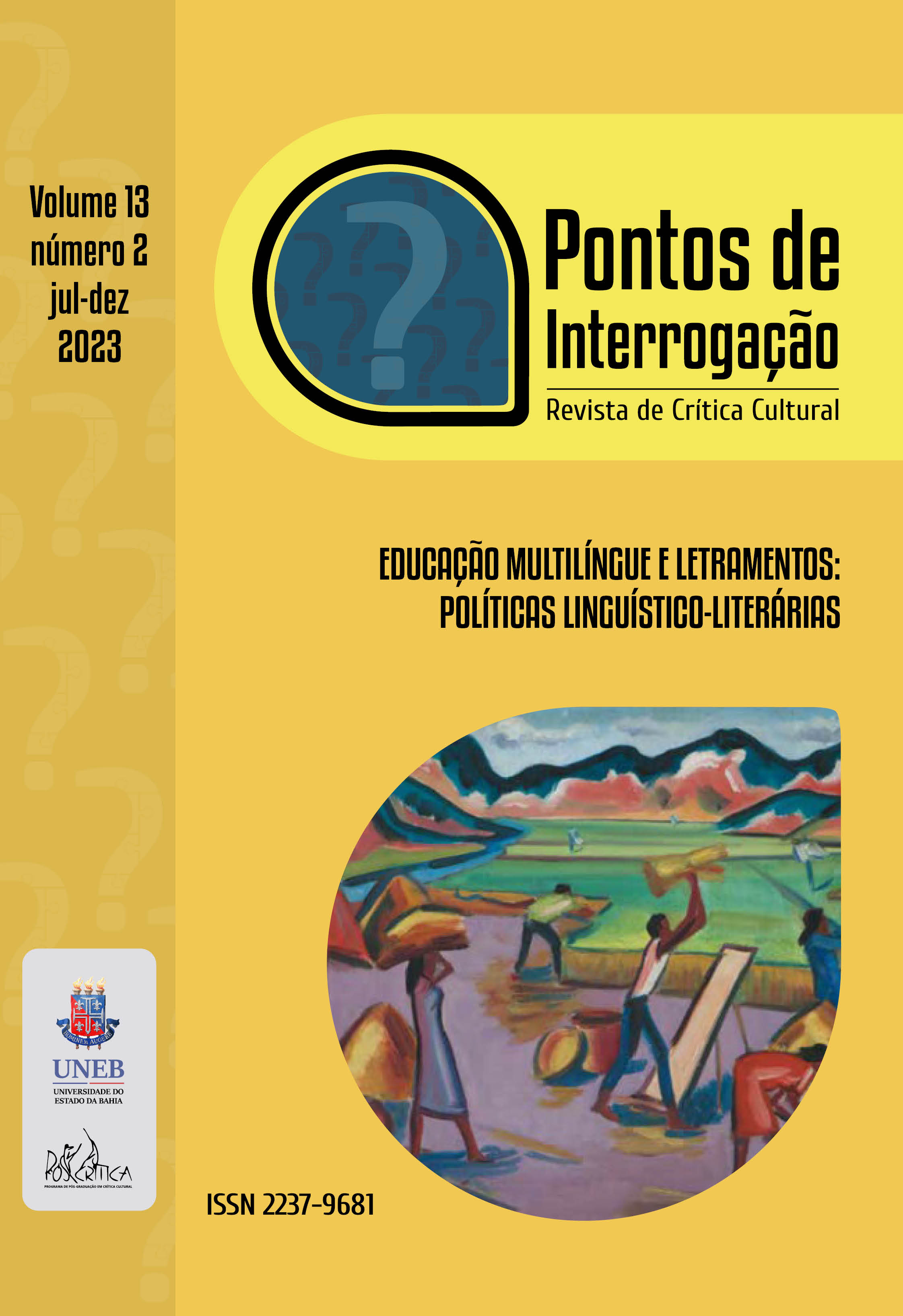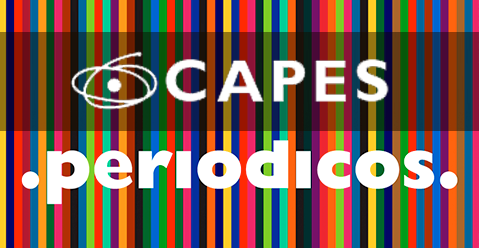Ensaio reflexivo – O maravilhamento do bem-querer
luzes da ciência para revigorar a humanização
DOI :
https://doi.org/10.30620/pdi.v13n2.p273Mots-clés :
Ensaio, Letramento, Psicologia positivaRésumé
O ensaio reflexivo intitulado “o maravilhamento do bem-querer: luzes da ciência para revigorar a humanização” escrito pela pesquisadora Helena Águeda Marujo da Universidade de Lisboa fecha o dossiê apresentando um outro letramento que nasce de um movimento emergente da psicologia positiva ocorrido no início do milénio. Essa nova abordagem científica objetiva o estudo das emoções positivas, do carácter positivo e das instituições positivas. Em diálogo com as ciências sociais e humanas vem apresentando resultados viáveis no que diz respeito às intervenções afetivas junto a crianças, jovens e adultos. Nesse sentido, vale a pena conhecer a reflexão trazida pela pesquisadora, fruto dos estudos do Programa de Pós-Graduação em Psicologia Positiva.
Téléchargements
Références
AKNIN, L. B., Barrington-Leigh, C. P. , Dunn, E. W., Helliwell, J. F., Burns, J., Biswas-Diener, R., … Norton, M. I. (2013). Prosocial spending and well-being: Cross-cultural evidence for a psychological universal. Journal of Personality and Social Psychology, 104(4), 635-652. https://doi.org/10.1037/a0031578.
BARTLETT, M. Y., & DeSTENO, D. (2006). Gratitude and prosocial behavior: Helping when it costs you. Psychological Science, 17(4), 319-325. https://doi.org/10.1111/j.1467-9280.2006.01705.x.
BARTZ, J. A., ZAKI, J., BOLGER, N., & OCHSNER, K. N. (2011). Social effects of oxytocin in humans: Context and person matter. Trends in Cognitive Sciences, 15(7), 301-309. https://doi.org/10.1016/j.tics.2011.05.002.
CIRELLI, L. K., WAN, S. J., & TRAINOR, L. J. (2014). Fourteenmonth-old infants use interpersonal synchrony as a cue to direct helpfulness. Philosophical Transactions of the Royal Society B: Biological Sciences, 369(1658), 20130400 – 20130400. https://doi.org/10.1098/rstb.2013.0400.
DECETY, J., BARTAL, I. B., UZEFOVSKY, F., & KNAFO-NOAM, A. (2015). Empathy as a driver of prosocial behaviour: Highly conserved neurobehavioural mechanisms across species. Philosophical Transactions of the Royal Society B, Biological Sciences, 371(April), 20150077. https://doi.org/10.1098/rstb.2015.0077.
DECLERCK, C. H., BOONE, C., & KIYONARI, T. (2010). Oxytocin and cooperation under conditions of uncertainty: The modulating role of incentives and social information. Hormones and Behavior, 57(3), 368-374. https://doi.org/10.1016/j.yhbeh.2010.01.006.
FALK, A., & FISCHBACHER, U. (2006). A theory of reciprocity. Games and Economic Behavior, 54(2), 293-315. https://doi.org/10.1016/j.geb.2005.03.001.
HENRICH, J., & HENRICH, N. (2006). Culture, evolution and the puzzle of human cooperation. Cognitive Systems Research, 7(2–3), 220-245. https://doi.org/10.1016/j.cogsys.2005.11.010.
JONES, K. S. (2006). Giving and Volunteering as Distinct Forms of Civic Engagement: The Role of Community Integration and Personal Resources in Formal Helping. Nonprofit and Voluntary Sector Quarterly, 35(2), 249-266. https://doi.org/10.1177/0899764006287464.
KELTNER, D. (2023). Awe: The new science of everyday wonder and how it can transform your life. New York: Penguin Press.
LYUBOMIRSKY, S., SHELDON, K. M., & SCHKADE, D. (2005). Pursuing happiness: The architecture of sustainable change. Review of General Psychology, 9(2), 111-131. https://doi.org/10.1037/1089-2680.9.2.111.
MA, Q., PEI, G., & JIN, J. (2015). What makes you generous? The influence of rural and urban rearing on social discounting in China. PLoS ONE, 10(7), 1-11. https://doi.org/10.1371/journal.pone.0133078.
MARSH, A. A., STOYCOS, S. A., BRETHEL-HAURWITZ, K. M., ROBINSON, P. , VanMeter, J. W., & Cardinale, E. M. (2014). Neural and cognitive characteristics of extraordinary altruists. Proceedings of the National Academy of Sciences, 111(42), 15036-15041. https://doi.org/10.1073/pnas.1408440111.
OTTONI-WILHELM, M., ZHANG, Y., ESTELL, D. B., & PERDUE, N. H. (2017). Raising charitable children: the effects of verbal socialization and role-modeling on children’s giving. Journal of Population Economics, 30(1), 189-224. https://doi.org/10.1007/s00148-016-0604-1.
POULIN, M. J., BROWN, S. L., DILLARD, A. J., & SMITH, D. M. (2013). Giving to others and the association between stress and mortality. American Journal of Public Health, 103(9), 1649-1655. https://doi.org/10.2105/AJPH.2012.300876.
RUDD, M., VOHS, K. D., & AAKER, J. (2012). Awe expands people’s perception of time, alters decision making, and enhances well-being. Psychological Science, 23(10), 1130– 6. https://doi.org/10.1177/0956797612438731.
Téléchargements
Publié-e
Comment citer
Numéro
Rubrique
Licence
(c) Tous droits réservés Pontos de Interrogação – Revista de Crítica Cultural 2024

Cette œuvre est protégée sous licence Creative Commons Attribution - Partage dans les Mêmes Conditions 4.0 International.
Autores que publicam nesta revista concordam com o seguinte termo de compromisso:
Assumindo a criação original do texto proposto, declaro conceder à Pontos de Interrogação o direito de primeira publicação, licenciando-o sob a Creative Commons Attribution License, e permitindo sua reprodução em indexadores de conteúdo, bibliotecas virtuais e similares. Em contrapartida, disponho de autorização da revista para assumir contratos adicionais para distribuição não-exclusiva da versão do trabalho publicada, bem como permissão para publicar e distribuí-lo em repositórios ou páginas pessoais após o processo editorial, aumentando, com isso, seu impacto e citação.























